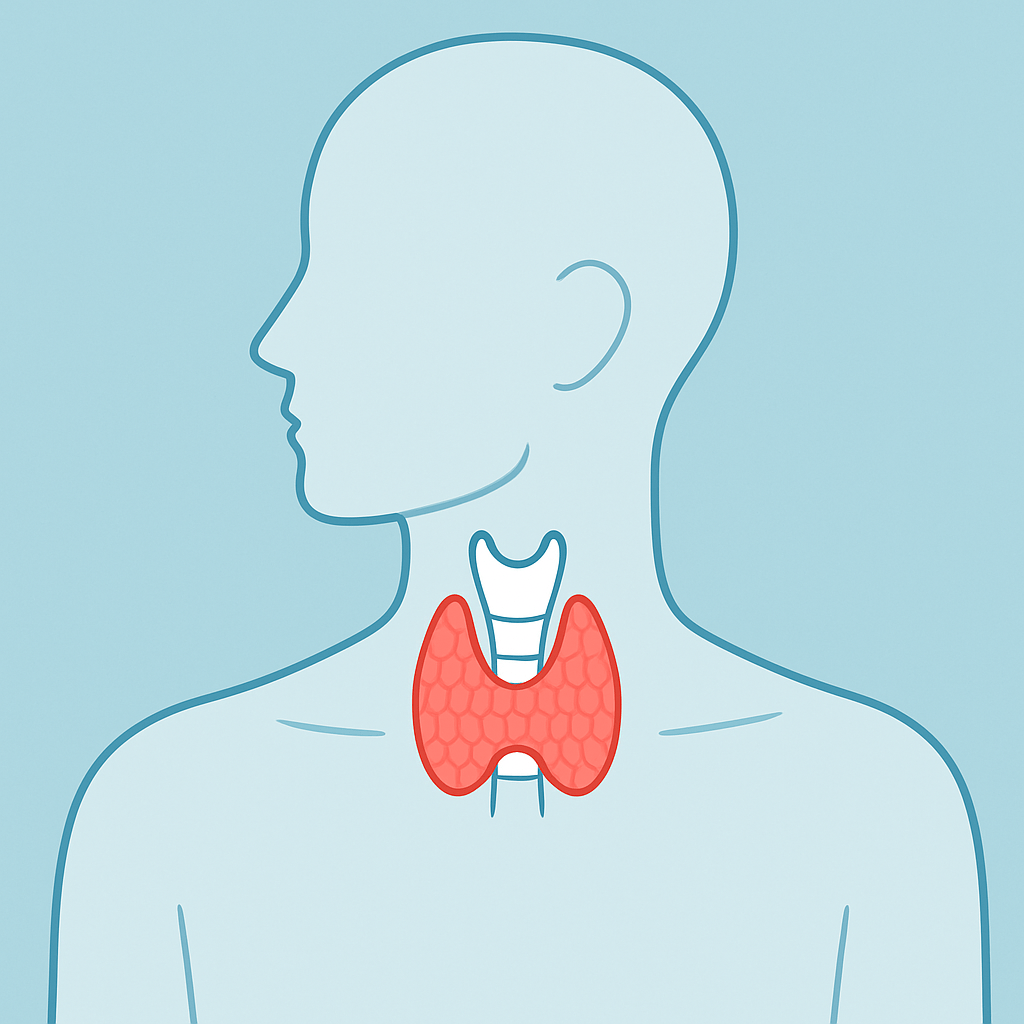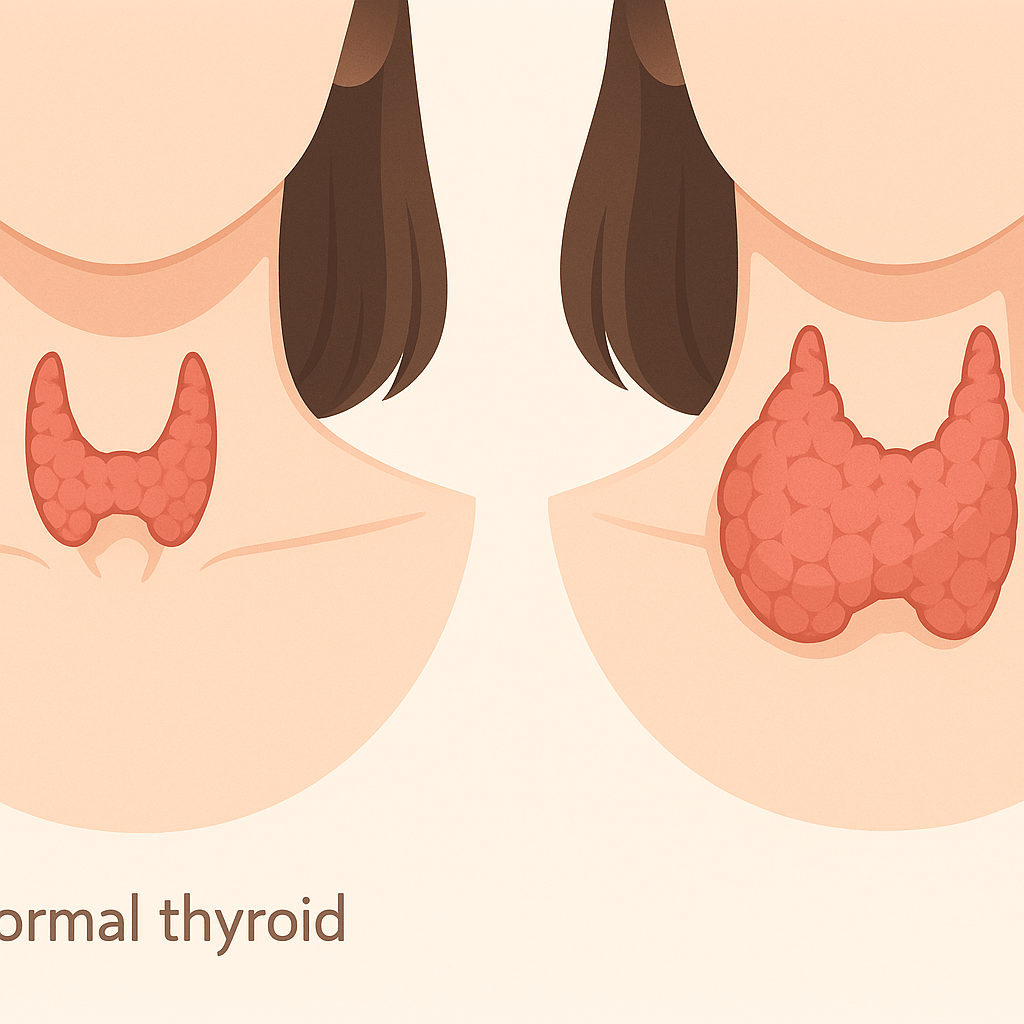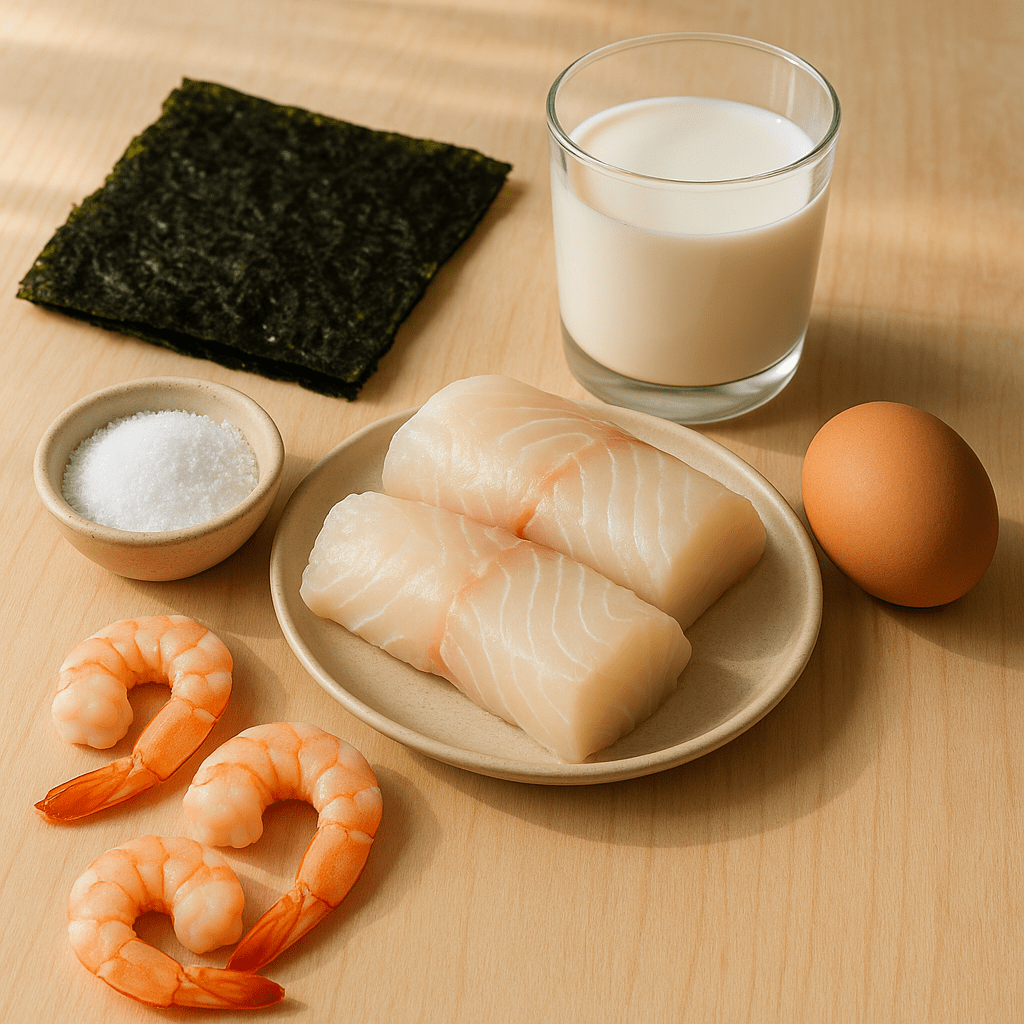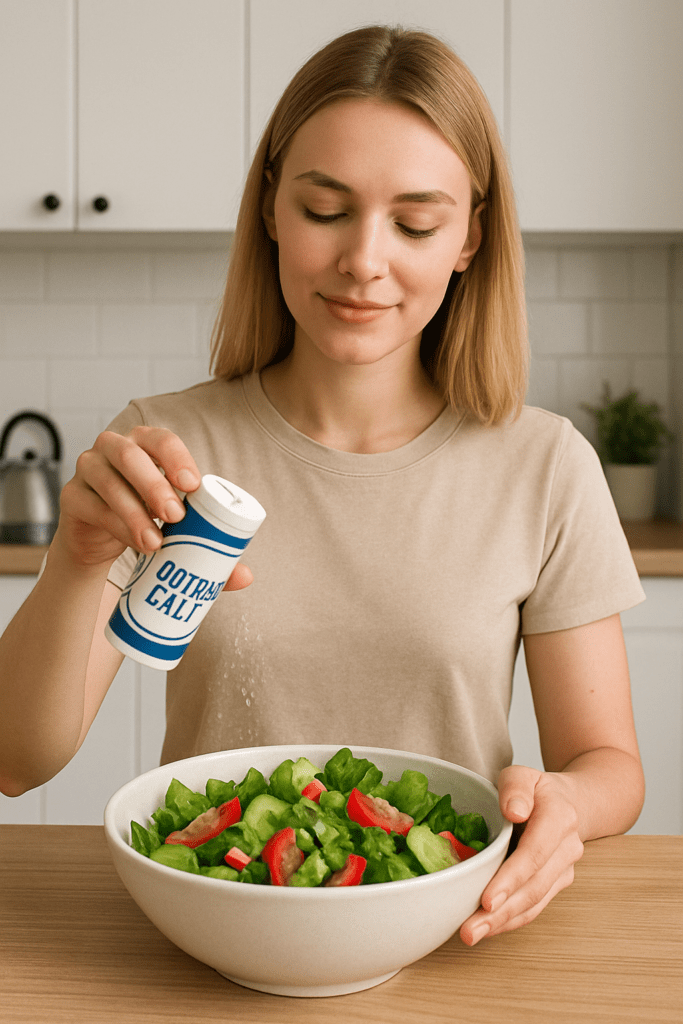Iodine is an essential trace element that the human body needs to function properly. This vital trace element plays a critical role in thyroid function, metabolism, and overall health. Despite its importance, iodine deficiency remains a global health problem affecting millions of people worldwide.
In this comprehensive guide, you will learn about the importance of iodine (also known as iodine) for health, its benefits, major dietary sources, risks of deficiency or excess, and the uses of iodine not only for human health but also for plant care. You will learn how to ensure optimal iodine levels in the body and avoid health disorders associated with its imbalance.
What is iodine? Functions and key roles in the body
Iodine is a naturally occurring trace element that is essential for the functioning of the human body. It is one of the most important elements, the deficiency of which can cause serious health problems. The main purpose of iodine is to participate in the production of thyroid hormones.

The thyroid gland uses iodine to produce the hormones thyroxine (T4) and triiodothyronine (T3), which regulate many important body functions, including:
- metabolism
- energy production
- body temperature control
- nervous system development
- muscle function
- growth and development
Thyroid hormones are involved in the activity of every cell in the body, so adequate iodine intake is essential for optimal organ function. The adult body contains about 15-20 mg of iodine, and most of it (about 70-80%) is stored in the thyroid gland.
Iodine requirements at different stages of life
Iodine requirements vary depending on age and physiological state. Adequate iodine intake is particularly important during pregnancy and lactation, as it directly affects the development of the fetus and infant’s brain. Iodine deficiency during pregnancy can lead to neurological developmental disorders in the child or even cretinism, a severe mental retardation syndrome.

The World Health Organization (WHO) recommends the following daily iodine intake:
- for infants up to 12 months – 110-130 μg
- for children from 1 to 8 years – 90-120 μg
- for children from 9 to 13 years – 120-150 μg
- for adolescents and adults – 150 μg
- for pregnant women – 220-250 μg
- for breastfeeding women – 250-290 μg
Key Health Benefits of Iodine
Iodine benefits for the body are diverse and important for overall good health. Adequate iodine intake helps ensure many essential body functions and protects against various health conditions.
- Normal thyroid function – Iodine is a key element necessary for the production of thyroid hormones, which regulate metabolism and energy production.
- Brain development and cognitive function – Adequate iodine intake during pregnancy and childhood is essential for normal brain development in children. Iodine deficiency can reduce IQ by as much as 10-15 points.
- Energy production and metabolism – Thyroid hormones, which require iodine to produce, regulate the activity of mitochondria, which are the energy factories of cells.
- Strengthening the immune system – Iodine has antimicrobial properties and helps maintain a normal immune system response.
- Protection against certain cancers – Some studies suggest that adequate iodine intake may help protect against certain cancers, particularly breast cancer.
- Hormone balance – Iodine helps regulate estrogen metabolism in women, which is important for reproductive health.
- Detoxification – Iodine helps remove toxic metals such as lead, mercury, and cadmium from the body.
Iodine and Thyroid Disorders
Adequate iodine intake is essential for preventing thyroid disorders. Too little iodine can cause hypothyroidism, a condition in which the thyroid gland does not produce enough hormones. Symptoms of this condition include fatigue, sensitivity to cold, weight gain, and depression.
On the other hand, too much iodine can cause hyperthyroidism, an excess of thyroid hormones in some people. Symptoms can include anxiety, insomnia, excessive sweating, weight loss, and heart rhythm disturbances.
Long-term iodine deficiency can cause goiter, an enlargement of the thyroid gland, when the body tries to compensate for the lack of iodine by increasing the size of the thyroid gland.

Iodine also plays an important role in the management of autoimmune thyroid diseases such as Hashimoto’s thyroiditis and Graves’ disease.
Food Sources of Iodine: Where to Find Iodine in Your Diet
Iodine enters the body mainly through food and water. However, the amount of iodine in soil varies greatly from region to region, so the amount of iodine found in foods can also vary significantly. Let’s take a look at the main sources of iodine in food.

Richest Sources of Iodine
- Seaweed is a particularly concentrated source of iodine. A single strip of nori (seaweed used to make sushi) can contain anywhere from 11 to 1,989 μg of iodine, often exceeding the recommended daily allowance.
- Seafood – especially cod, haddock, shrimp, and lobster – are excellent sources of iodine. A 3-ounce serving of cooked cod provides about 99 μg of iodine.
- Iodized salt – In many countries, including Lithuania, salt is fortified with iodine to prevent iodine deficiency. One teaspoon of iodized salt contains about 71 μg of iodine.
- Dairy products – cow’s milk, yogurt, and cheese are good sources of iodine, especially if the cows were fed iodine-fortified feed. A glass of milk contains about 56 μg of iodine.
- Eggs – One medium-sized egg contains about 24 μg of iodine.
- Lean meats and poultry, although not as rich as seafood, also contribute to your overall iodine needs.
It is important to note that the iodine content of foods can vary depending on the soil in which the plants were grown or the water in which the marine animals lived. Also, heat treatment can reduce the iodine content of foods.
Vegetarian, Plant-Based, and Special Diets
Vegetarians and vegans may find it more difficult to get enough iodine from their diet, especially if they do not consume iodized salt or seaweed. The main sources of iodine in a vegan diet are:

-
seaweed (nori, kombu, wakame)
-
iodized salt
-
some legumes
some fruits and vegetables (depending on
the soil in which they are grown)
It is especially important for people following these diets to pay attention to the amount of iodine in their food and, if necessary, consult a doctor or dietitian about taking additional iodine.
Iodine deficiency and excess: symptoms, risks and how to avoid them
Iodine imbalances – both deficiency and excess – can cause serious health problems. In this section, we will discuss the symptoms, risks and preventive measures for both conditions.
Iodine deficiency: symptoms and risks
Iodine deficiency is one of the most common micronutrient deficiencies in the world, affecting almost 2 billion people. The most important symptoms of iodine deficiency:
- fatigue and lack of energy
- enlargement of the thyroid gland (goiter)
- weight gain
- sensitivity to cold
- dry skin and hair
- memory and concentration problems
- muscle weakness and pain
- increased cholesterol levels
- depression
- menstrual disorders
Pregnant women are at particular risk, as iodine deficiency can cause serious developmental disorders in the fetus, including brain damage, mental retardation and physical developmental disorders.
Iodine Excess: Symptoms and Risks
While iodine deficiency is common, too much iodine can also be dangerous. Symptoms of iodine excess:
- increased salivation
- burning sensation in the mouth and nose
- abdominal pain
- diarrhea
- thyroiditis
- thyroid dysfunction (hyperthyroidism or hypothyroidism)
- allergic dermatitis
- headache
For certain groups, especially people with autoimmune thyroid diseases, excess iodine can be particularly dangerous, exacerbating existing disorders.
Prevention and risk reduction
To avoid iodine imbalance, it is recommended to:
- include various sources of iodine in the diet
- use iodized salt (but in moderation)
- regularly check thyroid function, especially if you are in a risk group
- avoid self-administration of iodine supplements without a doctor’s recommendation
- pay attention to regional dietary characteristics (in some regions, the soil naturally contains less iodine)
Iodine and radiological protection
Potassium iodide (KI) is used as a protective measure in the event of nuclear accidents. By taking potassium iodide tablets in a timely manner, people can protect the thyroid gland from radioactive iodine that may be released into the environment during such accidents.
It is important to understand that regular iodine supplements or foods rich in iodine are NOT a suitable means of protection against radiation – special potassium iodide preparations are used for this purpose, the use of which is regulated by government authorities.
Iodine Supplements: When, How, and Safety
Iodine supplements may be beneficial for individuals at risk of iodine deficiency, but their use should be carefully monitored by a healthcare professional. Inappropriate use of iodine supplements can lead to a variety of health problems.
When are iodine supplements needed?
Iodine supplements may be beneficial for the following groups:
- pregnant and breastfeeding women whose diet does not provide sufficient iodine
- vegans and vegetarians who do not consume iodized salt or seaweed
- people living in regions with low iodine levels in the soil
- people with diagnosed iodine deficiency
- people after thyroid surgery or radioactive iodine treatment
Iodine supplement forms and dosage
Iodine supplements are available on the market in various forms:
- potassium iodide (KI) tablets
- sodium iodide solutions
- seaweed extracts
- multivitamins with iodine
The standard recommended dose of iodine in supplements for adults is 150 μg per day. Higher doses may be recommended for pregnant and breastfeeding women – 220-250 μg and 250-290 μg per day, respectively. However, the specific dose should always be determined by a doctor, taking into account the individual patient’s condition and needs.
Safety considerations and side effects
Iodine supplements may cause side effects, especially if the doses are too high or if a person has certain medical conditions:
- thyroid dysfunction (both hyperthyroidism and hypothyroidism)
- skin rash and itching
- digestive disorders (nausea, diarrhea)
- metallic taste in the mouth
- allergies
- People with autoimmune thyroid diseases (Hashimoto’s thyroiditis or
- Graves’ disease) should use iodine supplements
- with particular caution, as excess iodine can
- exacerbate symptoms.
Before starting to take iodine supplements, it is necessary to consult a doctor and discuss the potential benefits and risks. Your doctor may recommend testing your thyroid function and iodine levels in order to properly assess your need for supplements.
Iodine uses beyond human health: applications in plants and the environment
In addition to its importance in human health, iodine also has various applications in plant care and environmental protection. This trace element plays an important role in plant physiological processes and can be used as a natural remedy to improve plant health.
Iodine in plant physiology
Although iodine is not considered an essential trace element for plants, studies show that small amounts of iodine can positively affect plant growth and development. Iodine in plants:
- improves photosynthesis efficiency
- promotes root development
- increases stress resistance (drought, cold, disease)
- improves antioxidant protection of the plant
- increases yield and quality
Biofortification: Iodine-enriched crops
Biofortification is the process of growing crops to increase their nutrient content. Iodine biofortification is becoming an increasingly popular way to combat iodine deficiency in regions where the soil is naturally low in this element.
Crops can be enriched with iodine in several ways:
- fertilizing the soil with iodine compounds
- spraying plants with iodine solutions
- incorporating iodine compounds into irrigation systems
Studies show that vegetables, especially leafy vegetables (lettuce, spinach) and root vegetables (carrots, potatoes), absorb iodine well and can be successfully enriched with this microelement.
Practical uses of iodine in the garden
Gardeners and gardeners can use iodine in a variety of ways:

- Disease prevention – a weak iodine solution (1-2 drops of iodine per liter of water) can be used as a natural fungicide and bactericide to protect plants from diseases.
- Soil disinfection – iodine can help destroy harmful microorganisms in the soil.
- Plant fertilization – very dilute iodine solutions can be used as additional fertilization, especially in regions with iodine deficiency.
However, it is important to remember that iodine should be used very carefully and only in small doses. Excessive iodine can be toxic to plants and cause yellowing of leaves, growth retardation or even plant death.
Before using iodine in your garden or vegetable patch, it is recommended to test its effect on a small area of plants and observe the reaction. It is also worth familiarizing yourself with the peculiarities of the sensitivity of specific plant species to iodine, since different plants may react differently to this element.
Frequently Asked Questions (FAQs)
What are the early signs of iodine deficiency?
The most common early signs of iodine deficiency include fatigue, weight gain, dry skin, increased sensitivity to cold, and a swollen neck (goiter).
Is it safe to take iodine supplements daily?
Iodine supplements are safe to take daily only if prescribed by a healthcare professional. Too much iodine can be harmful and cause thyroid problems.
What foods are the best natural sources of iodine?
The best natural sources of iodine are seaweed, iodized salt, dairy products, eggs, and some fish, such as cod and tuna.
Can I use iodine in my garden?
Yes, iodine can be used in the garden, but only in the recommended low doses and for specific plants. Too much iodine can harm plants.
Do iodine supplements protect against radiation exposure?
Only high doses of potassium iodide, as recommended by the authorities in the event of a nuclear accident, protect the thyroid gland from radioactive iodine. Conventional iodine supplements do not provide such protection.
